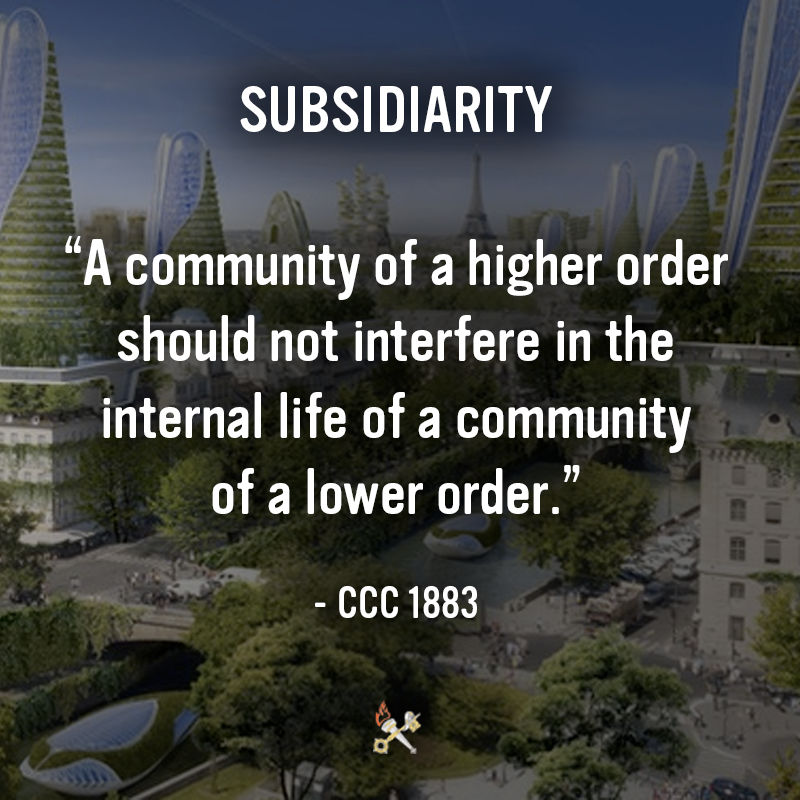In Catholic social teaching, the principle of subsidiarity holds a prominent place as a guiding principle for social and political organization. Rooted in the dignity of the human person and the belief in the importance of community, subsidiarity emphasizes the importance of decentralization, local decision-making, and the involvement of smaller social units in addressing societal issues. This article will explore the principle of subsidiarity, its origins, its application in various spheres of life, and its significance in fostering a just and balanced society.
Origins and Definition
The principle of subsidiarity finds its roots in Catholic social thought, particularly in Pope Leo XIII’s 1891 encyclical, Rerum Novarum. It was further developed and articulated by subsequent popes, most notably Pope Pius XI and Pope John Paul II. Subsidiarity, as defined by Pope Pius XI, states that “a community of a higher order should not interfere in the internal life of a community of a lower order, depriving the latter of its functions.”
Principle and Application
At its core, subsidiarity promotes the idea that decision-making and responsibility should be allocated to the lowest and most immediate level of authority capable of addressing the matter effectively. This means that larger societal entities, such as the state or international bodies, should only intervene when smaller units, such as families, communities, or local governments, are unable to handle a particular issue adequately.
In the political realm, subsidiarity implies that governments should respect and support the autonomy and self-governance of local communities and institutions. It encourages a healthy balance between centralized authority and the ability of individuals and smaller communities to exercise their freedom and contribute to the common good.
Subsidiarity extends beyond the political sphere and applies to economic, social, and cultural aspects of life as well. It emphasizes the importance of voluntary associations, such as charities and community organizations, in addressing social needs, rather than relying solely on government intervention. It recognizes the unique role of the family as the primary social unit and promotes its autonomy and importance in raising children and forming the fabric of society.
Significance and Impact
The principle of subsidiarity has significant implications for fostering a just and balanced society. It recognizes the inherent dignity and capabilities of individuals and communities, promoting their active participation and empowering them to take responsibility for their own welfare and that of others. By respecting and promoting subsidiarity, societies can avoid excessive centralization of power, which can lead to alienation, bureaucracy, and a loss of individual freedom.
Furthermore, subsidiarity fosters solidarity and cooperation by acknowledging the interconnectedness of individuals and communities. It promotes a sense of shared responsibility and encourages collaboration between different levels of authority, fostering a vibrant civil society.
Conclusion
The principle of subsidiarity is a central tenet of Catholic social teaching, emphasizing the importance of decentralization, local decision-making, and the involvement of smaller social units. It promotes respect for the autonomy and dignity of individuals and communities, encouraging their active participation in addressing social, economic, and political issues. By upholding subsidiarity, societies can strive towards a more just, balanced, and harmonious coexistence, where the well-being of all is safeguarded, and the common good is pursued through the proper allocation of authority and responsibility.
 The Libertarian Catholic
The Libertarian Catholic
















